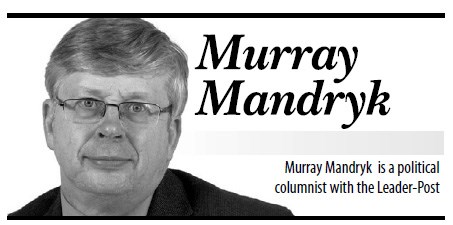
When you think about it, both the Saskatchewan Party government and rural Saskatchewan have a very odd relationship with our Crown corporations.
Both the Sask. Party and rural Saskatchewan right now are largely conservative in nature, explaining why about three out of every four rural voters have voted for Premier Brad Wall’s party in the past two elections.
Yet both rural Saskatchewan and the Sask. Party remain supporters of our Crown corporations, mostly seen as something that’s emerged out of the social democratic ideology.
Like many issues in politics, the reasons why are more complex than initially meets the eye.
First, while the CCF/NDP whole-heartedly took ownership of the Crowns as their own idea, the creation of Crowns like SaskPower pre-dates the formation of the CCF in 1933.
Moreover, one might be surprised to know Grant Devine’s Progressive Conservatives created more Saskatchewan Crown corporations than anyone.
This would seem to suggest that good ideas (nor bad ones, for that matter) know no political bounds.
Second, what amounts to a good idea in governance largely depends on your need, which may be why rural Saskatchewan has always embraced the Crown corporations.
Rural voters may now be conservative in nature. But all voters put their own needs first, which may be why rural Saskatchewan is now contradictory supportive of the Saskatchewan Transportation Company bus company or even SaskTel that competes directly with private sector providers.
It may not make any sense to support either in the context of a free-enterprise philosophy, but it makes a lot of sense in the context of basic needs.
And given that Premier Brad Wall’s Sask. Party is still reliant on rural Saskatchewan voters to maintain its strong government majority, it only makes sense that it would be eager to cater to rural voters’ needs.
In that sense, keeping STC is no different than adding an MRI to Moose Jaw’s hospital or CT scanner to Estevan. Meeting the needs and wants of rural voters still dictates much of this government’s policy making.
Public health care is still a huge priority for rural voters … or at least, close, local CT scanners are more of a priority to rural voters than whether hospital laundry service is delivered by a private company or employees of the local health region.
It is for this reason that you are now hearing concerns over the government “privatizing” SaskTel.
At issue is Wall’s recent announcement that SaskTel will undergo a “risk analysis” to assess its value and operations in today’s competitive telecommunication, TV and Internet markets.
Nervous unions and SaskTel employees (most of whom are located in the cities) are fearful that this move, coming in the wake of the sale of Manitoba’s MTS, means SaskTel is up on the privatization block.
Certainly, the fact that other private carriers can now use SaskTel’s network and towers in rural Saskatchewan has added to the case that a government-owned telephone company is no longer needed.
But listening to Wall, one gets the distinct impression that he isn’t exactly eager to offend his rural base by privatizing the telephone company most committed to providing rural Saskatchewan with cell coverage, Internet, satellite TV, etc.
Really, Wall is just doing the same thing the former NDP government did when it also conducted such risk assessments.
To not undergo such a risk analysis would seem more irresponsible.
And if the Sask. Party were as hell-bent on privatization as the unions and NDP say they are, wouldn’t it also be ordering the same “risk analysis” for SaskPower or SaskEnergy?
Instead, we will see a 10-percent SaskPower rate hike, but that’s a story for another day.
As for today, the Crowns are still in sync with rural Saskatchewan needs.
��



